In today’s competitive landscape, intellectual property (IP) management is crucial for startups seeking to carve out their niche in the market. With innovation driving growth, understanding and protecting these assets can make a significant difference between success and failure.
Understanding Intellectual Property (IP)
Intellectual property encompasses the legal rights granted to individuals and organizations for their creative and intellectual endeavors. This can include inventions, designs, brands, and artistic works. Familiarizing oneself with the various types of IP is essential for any startup aiming to leverage its innovations. In an increasingly competitive marketplace, understanding IP not only helps in protecting one’s creations but also in navigating the complex landscape of legal rights that can influence business strategies and market positioning.
Types of Intellectual Property
There are several distinct types of intellectual property, each serving different purposes and offering unique protections. The primary categories include:
- Patents: Protect inventions and processes that provide a new way of doing something or offer a new technical solution. Obtaining a patent can take time and resources, but it can ultimately lead to substantial financial rewards if the invention is commercially viable.
- Trademarks: Protect symbols, names, and slogans used to identify goods or services. A well-established trademark can become synonymous with quality in the minds of consumers, making it a valuable asset for any business.
- Copyrights: Protect creative works such as music, literature, and art. Copyrights automatically apply upon the creation of a work, but registering them can provide additional legal benefits and remedies in case of infringement.
- Trade Secrets: Protect confidential business information that provides a competitive edge. This can include formulas, practices, and processes that are not publicly known, making it crucial for businesses to implement strict confidentiality measures.
Understanding these types will help founders determine which protections are relevant to their business model. Additionally, recognizing the nuances of each type can aid in crafting a comprehensive IP strategy that aligns with the startup’s goals and market dynamics.
Importance of IP for Startups
The significance of intellectual property for startups cannot be overstated. IP serves multiple purposes that directly contribute to a startup’s success:
- It provides a competitive advantage by safeguarding unique offerings. By protecting innovations, startups can prevent competitors from copying their ideas, allowing them to carve out a niche in the market.
- It enhances the startup’s valuation, making it more attractive to investors. Investors are often keen to see a robust IP portfolio, as it indicates a startup’s potential for growth and profitability.
- It fosters innovation, encouraging the development of new ideas and products. When founders know their creations are protected, they are more likely to invest time and resources into research and development.
- It establishes the brand identity and builds consumer trust. A strong trademark can create a lasting impression, helping consumers to easily recognize and choose a brand over others.
Moreover, a strong IP portfolio can serve as a negotiating tool in partnerships and licensing agreements. Startups can leverage their IP assets to secure favorable terms, whether they are looking to collaborate with larger companies or seeking to license their technology. Additionally, having a well-defined IP strategy can help startups navigate potential legal disputes, ensuring they are prepared to defend their rights if necessary. As the landscape of technology and creativity continues to evolve, the importance of a proactive approach to intellectual property becomes increasingly clear, making it an essential component of any startup’s business plan.
Building an IP Strategy
Creating a robust IP strategy is essential for startups looking to protect their innovations and leverage them for growth. An effective strategy involves several key steps that must be executed methodically.
Identifying Your IP
The first step in building an IP strategy is identifying what constitutes your intellectual property. This includes:
- Evaluating existing products and services for potential patents.
- Creating a comprehensive list of branding elements that require trademark protection.
- Documenting original content that may be eligible for copyright protection.
- Assessing business operations for any trade secrets that need safeguarding.
By identifying all potential IP assets, startups can prioritize which elements require immediate attention. This process not only helps in recognizing valuable assets but also fosters a culture of innovation within the organization. Encouraging team members to contribute to the identification of IP can lead to the discovery of hidden gems that may have otherwise gone unnoticed. Furthermore, maintaining a detailed inventory of IP assets can aid in strategic decision-making, ensuring that resources are allocated efficiently to maximize protection and value.
Protecting Your IP
Once IP has been identified, the next step involves protecting these assets effectively. There are several key methods for protection:
- Filing for patents and trademarks to secure exclusive rights.
- Implementing nondisclosure agreements (NDAs) with employees and business partners.
- Educating team members about the importance of IP and conducting regular audits.
- Establishing clear policies regarding the use and handling of proprietary information.
By following these measures, startups can create a formidable barrier against potential infringement and misuse. Additionally, it is crucial to stay informed about the evolving landscape of IP law, as regulations and enforcement mechanisms can change. Regularly consulting with legal experts specializing in intellectual property can provide invaluable insights and help navigate complex issues. Moreover, startups should consider actively monitoring the market for any potential infringements, as early detection can significantly reduce the cost and complexity of legal battles. Engaging in proactive IP management not only safeguards innovations but also enhances the overall credibility and competitive edge of the business.
Legal Aspects of IP Management
As startups navigate the world of intellectual property, it’s crucial to understand the legal frameworks that govern it. Knowledge of these laws and regulations can provide valuable insights into managing IP effectively. This understanding not only aids in protecting innovations but also enhances the startup’s credibility in the eyes of investors and partners, who often look for a solid IP strategy as a sign of a well-managed business.
IP Laws and Regulations
Intellectual property laws vary by jurisdiction, but certain basic principles apply universally. For startups, it’s essential to understand:
- The types of IP protection available in their country.
- The duration of protection for patents, trademarks, copyrights, and trade secrets.
- The necessity for regular renewal or maintenance of IP protection.
- The penalties for infringement and the potential for litigation.
Consulting with legal experts can help navigate these complexities and ensure compliance. Furthermore, staying informed about changes in IP laws can be advantageous, as legislative shifts may introduce new opportunities or challenges. For instance, recent trends in digital copyright law may affect how startups protect their online content, necessitating a proactive approach to IP management.
IP Rights and Licensing
Understanding IP rights is fundamental for startups, particularly when it comes to licensing agreements and collaborations. Some key considerations include:
- Determining ownership of IP created by employees or contractors.
- Crafting licensing agreements that outline rights and responsibilities.
- Understanding how to monetize IP through licensing or partnerships.
- Reviewing IP portfolios regularly to identify additional licensing opportunities.
Having a clear grasp of IP rights not only protects the startup’s interests but also opens avenues for revenue generation. Startups can leverage their IP assets to negotiate favorable terms with investors, as a robust IP portfolio can significantly enhance a company’s valuation. Additionally, engaging in strategic partnerships can lead to co-branding opportunities, further amplifying the reach and impact of the startup’s innovations. It’s also vital to keep abreast of industry trends, as shifts in market dynamics can create new licensing opportunities or necessitate adjustments in existing agreements.
IP Management Tools and Resources
To manage intellectual property effectively, startups can utilize various tools and resources. These can streamline processes, enhance protection measures, and provide support in navigating the landscape. The importance of a solid IP strategy cannot be overstated, as it not only safeguards innovations but also adds significant value to the business, making it more attractive to investors and partners.
IP Management Software
Investing in IP management software can significantly simplify the way startups handle their intellectual property. Such tools help with:
- Tracking application statuses and deadlines for trademarks and patents.
- Documenting evidence of use and any potential infringement incidents.
- Facilitating the management of IP licenses and agreements.
- Generating reports for audit purposes.
Choosing the right software can lead to better organization and a more proactive approach to IP management. Many software solutions also offer features like automated reminders for renewal deadlines and customizable dashboards that provide a comprehensive overview of all IP assets. This not only saves time but also reduces the risk of missing critical deadlines, which can lead to the loss of valuable rights.
Professional IP Services
In addition to software tools, startups can also benefit from professional IP services. These include:
- Consulting with IP attorneys to ensure compliance and protection.
- Engaging patent and trademark agents for application filing.
- Utilizing IP valuation services to assess the market value of IP assets.
By leveraging professional expertise, startups can navigate the complexities of IP management more effectively. Furthermore, professionals can provide tailored advice based on the specific industry and market conditions, ensuring that the IP strategy aligns with the overall business goals. For instance, they can help identify potential areas for expansion or collaboration and advise on the best practices for licensing agreements that can generate additional revenue streams.
IP Management Challenges for Startups
While managing intellectual property is essential, startups often face unique challenges. Recognizing and addressing these issues is key to successful IP management.
Common IP Mistakes
Some typical mistakes made by startups in managing intellectual property include:
- Failing to conduct thorough prior art searches before patent applications.
- Neglecting to register trademarks, potentially jeopardizing brand identity.
- Assuming that simply maintaining trade secrets is sufficient protection.
- Overlooking gaps in IP strategy, leading to missed opportunities.
Being aware of these pitfalls can help startups avoid substantial repercussions.
Overcoming IP Challenges
Startups can take several steps to overcome IP management challenges, including:
- Conducting regular training sessions to educate employees about IP importance.
- Staying informed on updates to IP laws and trends within the industry.
- Building a strong network of IP professionals for guidance and support.
- Implementing proactive measures to detect and address possible infringements early.
By adopting these strategies, startups can build a resilient IP management framework that supports their growth ambitions.
Conclusion
In conclusion, effective IP management is a cornerstone of a successful startup strategy. Understanding the various types of intellectual property, building a comprehensive IP strategy, and being aware of legal aspects are vital for startups. Leveraging the right tools and resources, while remaining vigilant against common challenges, will empower startups to capitalize on their innovations and secure their place in the market.
Computer Packages Inc. (CPI) is a privately owned IP management company with over fifty years of experience serving the IP community. Our mission is to be the most trusted partner in safeguarding clients’ IP assets with innovative IP management software and annuity services. Learn how we specialize in IP patent, trademark, and annuity management by exploring our services.


